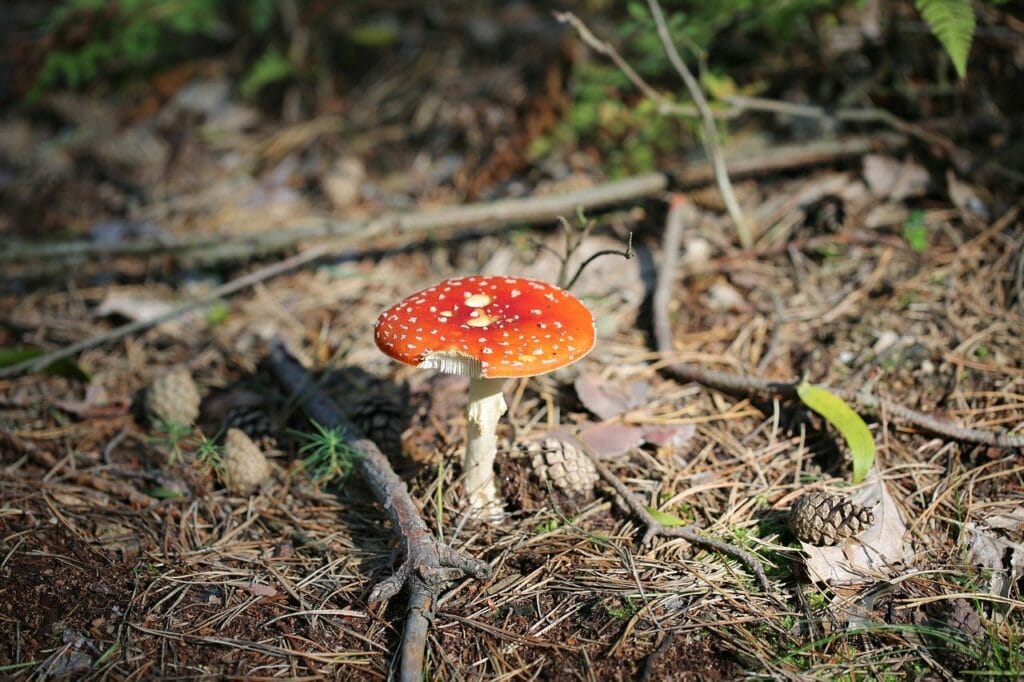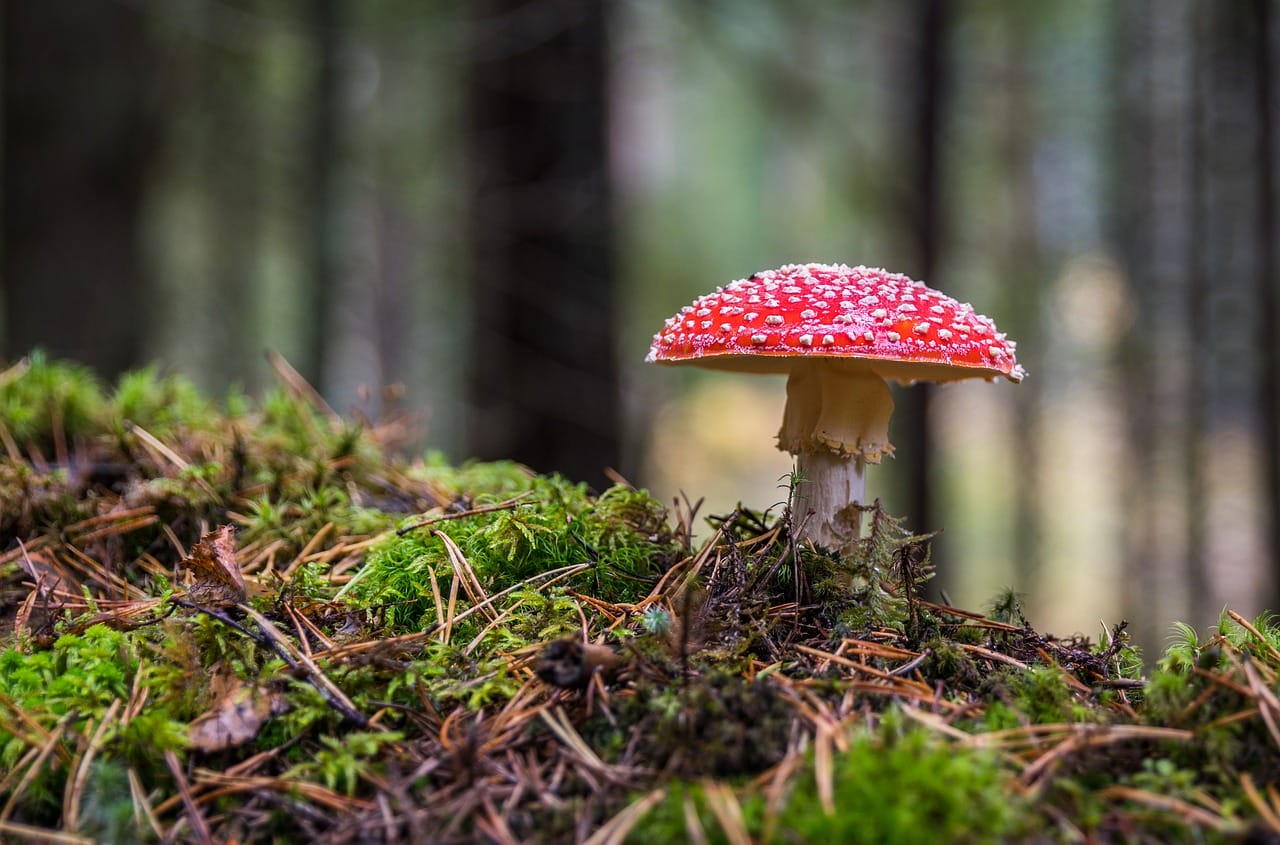Throughout the course of history, humans have identified and purposefully utilized the psychedelic characteristics of certain plants and fungi.
Among these, fungi, particularly the so-called magic mushrooms, are considered the primary natural source of psychedelic substances.
The psychedelic substance known as psilocybin, which is found in mushrooms, has played a substantial role in history, being used in both religious ceremonies and therapeutic practices.
Many researchers are dedicating their resources to explore the possible health benefits of online shrooms. Current studies have shed light on the effects of psilocybin mushrooms, sparking hope for many people and prompting the need for a conversation about their role in Canada’s healthcare system.
Main Takeaways:
- Magic mushrooms are rich in the psychoactive compound psilocybin, which can be beneficial for treating mental health issues in Canada.
- Psilocybin is a safer alternative to opioids, with a lower addiction and toxicity risk.
- Psilocybin has shown lasting effectiveness in treating depression, with effects that can endure for up to a year.

Exploring Psilocybin
Psilocybin is an indole-alkylamine (tryptamine) derived from magic mushrooms and structurally similar to lysergic acid diethylamide (LSD). Its effects encompass hallucinogenic and euphoric sensations, likely due to its interaction with the serotonin (5-HT) receptors in the central nervous system.
With its ability to interact with serotonin receptors, high-quality magic mushrooms show a unique potential to help in the treatment of mental health conditions.
The Mental Health and Opioid Situation in Canada
Common Mental Health Disorders in Canada & Their Resistance to Treatment
| 2012 | 2022 | |
| Major Depressive Episodes | 4.7% | 7.6% |
| Generalized anxiety disorder | 2.6% | 5.2% |
| Social anxiety | 3.0% | 7.1% |
| Alcohol dependency | 3.2% | 2.2% |
Over one-third (36.6%) of individuals dealing with mood, anxiety, or substance use disorders reported that their healthcare and mental health needs are not being adequately met.
An investigative report published in the Canadian Journal of Psychiatry shed some light on the treatment-seeking behavior of patients with depression. The study examined the records of 1282 patients from 135 doctors, and found that 263 of these patients were suffering from treatment-resistant depression (TRD). This indicates a prevalence rate of 21.7% across the country.
Opioid Crisis
In Canada, around 8 million people, or one in five, experience chronic pain. This unmanaged pain can negatively affect various aspects of an individual’s life.
For pain management, healthcare professionals sometimes recommend the use of opioid medications. While opioids can provide benefits like pain relief and improved functionality, they also carry potential risks.
From January 2016 to March 2022, Canada recorded at least 30,843 deaths related to opioid toxicity. The peak of these tragic incidents happened in early 2021, with a staggering 5,368 cases reported. Significantly, over 88% of these incidents took place in the provinces of British Columbia, Ontario, and Alberta.
For Major Depressive Episodes
A research published in the Journal of Psychopharmacology recruited 27 individuals with a prolonged history of depression. The majority had been suffering from depressive symptoms for about two years prior to joining the study. Of these, 88% had previously been treated with conventional antidepressants, and 58% were still using these medications during their depressive episodes.
The study recorded significant reductions in depression after psilocybin treatment for both groups. Moreover, the severity of depression remained consistently low at follow-up times of one, three, six, and 12 months post-treatment.
For General Anxiety and Social Phobia
A case study published in the Croatian Medical Journal in October 2021 explored HTML:
The story focuses on a
A 16-year-old boy, who was prone to self-isolation, battling severe anxiety, and experiencing a downturn in his academic performance, sought help at a mental health clinic. His situation was further complicated by a learning disability and a lack of motivation towards schoolwork, which resulted in him finding group therapy overwhelming and ineffective.
Following three sessions of psilocybin treatment over 18 months, the boy exhibited significant improvements. His anxiety was notably reduced, and he became better at communicating with his peers and teachers. He started expressing his feelings more openly, actively engaged in group therapy, and experienced improved interpersonal relationships.
Alcohol Use Disorder Treatment
A recent clinical trial described in a study published in JAMA Psychiatry on August 24 demonstrated the potential of combining psilocybin and psychotherapy to treat alcohol use disorder. The study tracked the progress of 93 patients suffering from the disorder over a period of 32 weeks.
Of the 48 individuals who underwent psilocybin-assisted therapy, an outstanding 83% decrease in alcohol consumption was noticed within eight months of their first dose, compared to a 51% reduction in the placebo group. Almost half the participants who received psilocybin ceased drinking altogether.
Addressing the Opioid Crisis
Elena Argento, a postdoctoral fellow at the University of British Columbia and BC Centre on Substance Use, is conducting research on the medicinal applications of psychedelics.
Argento explains that psilocybin works in two ways to mitigate addiction risks: it has effects on both neurobiology and psychology. She points out the transformative experiences that psychedelics can bring about, characterized by a profound sense of awe and self-transcendence. These experiences often assist individuals in discovering new meanings and purposes in life, potentially leading to behavioral changes, especially in relation to addiction.
In a longitudinal study recently conducted by Argento and the BC Centre on Substance Use, it was found that there was a significant decrease in the likelihood of continued daily illicit opioid use among those who had recently used psychedelics or had done so in the past six months.
Argento’s 2018 study also indicated that psychedelic use could act as a protective factor against the link between prescription opioid use and suicide risk.
Another study revealed a correlation between psilocybin use and a decreased risk of opioid use disorder. This earlier research pointed to a 40% reduced risk of opioid misuse and a 27% lower risk related to opioid dependence over the
The use of psychedelics has seen a significant increase over the past year.
The Need for Health Canada and Other Regulatory Authorities to Consider Psilocybin as Part of Canada’s Therapeutic Strategy
Despite the recognition of psilocybin’s potential positive effects on Canadian mental health, its acquisition remains a challenge. Health Canada allows medical professionals to prescribe this treatment through the Special Access Program, but the strict guidelines pose a substantial hurdle for many doctors and patients.
The medicinal use of psilocybin-containing mushrooms could revolutionize mental health care in Canada, offering possibly transformative benefits. Instead of depending on conventional, and often less effective, treatments like pharmaceuticals or opioid substitution therapy, psilocybin therapy provides an alternative with the potential for significant and lasting effects.
Research suggests that psilocybin therapy could offer long-term benefits, potentially saving patients considerable expenses on ineffective treatments. Additionally, studies indicate psilocybin is relatively safe, with low toxicity, minimal risk of misuse, and infrequent overdose cases.
How Can Psilocybin be Purchased Online?
For Canadians struggling to access psilocybin therapy, they can opt to buy magic mushrooms online to improve their current situations. They can investigate a variety of magic mushroom products, from high-dose shrooms to microdose magic mushrooms.
High-dose shrooms consist of psychedelic mushrooms available in different formats like dried magic mushrooms, edibles, or drinks, which are consumed for their hallucinogenic and therapeutic effects.
Microdosing magic mushrooms refers to products containing small amounts of magic mushrooms. These products come in capsules, shroom edibles, or shroom tea. Buying shrooms online offers an alternative way to discreetly experience the benefits of these mushrooms. Fungalfriend Canada is an exclusive online provider of premium magic mushrooms, ensuring top quality.
Is Psilocybin a Good Fit for Canadian Healthcare?
Psilocybin is often misunderstood due to its recreational use. It’s important to note that psilocybin has a safer profile than opioids and other drugs commonly prescribed in healthcare contexts.
There’s a growing body of evidence suggesting its potential benefits, similar to those of marijuana, in treating a range of mental health disorders. dimensions of reality.
Magic mushrooms have been utilized in the wellness sector for their potential benefits in mental health care and personal development.
What potential risks and side effects could magic mushrooms have?
Magic mushrooms can lead to a range of effects, both beneficial and detrimental. These may encompass hallucinations, altered perception, and changes in one’s psychological state. On the flip side, they might lead to nausea, dizziness, and in rare instances, mental distress. Taking magic mushrooms should be done with due caution and respect for the possible risks. Always consult with a healthcare professional before incorporating magic mushrooms into any new regimen.
Is purchasing magic mushrooms online safe?
Procuring magic mushrooms online can be a safe practice, as long as you opt for a trustworthy provider. It’s crucial to extensively research the product, the brand, and the online dispensary prior to making a purchase. Customer reviews and ratings can serve as valuable indicators of the product’s quality and the service reliability. Always prioritize dispensaries that value customer safety and satisfaction and provide secure methods of payment.
Is it possible to cultivate magic mushrooms on my own?
Indeed, it is possible to grow magic mushrooms at home, which can be a fulfilling endeavor. However, it necessitates specific conditions and a comprehensive understanding of the cultivation process. There are numerous kits and guides available online to support you in your cultivation quest. However, bear in mind that the legality of cultivating magic mushrooms is jurisdiction-dependent, so ensure that you’re conforming to your local laws and regulations.
In the wellness domain, some individuals opt for a more measured approach, consuming small quantities of mushrooms to harness their benefits without triggering hallucinations.
Articles You Might Find Intriguing:





